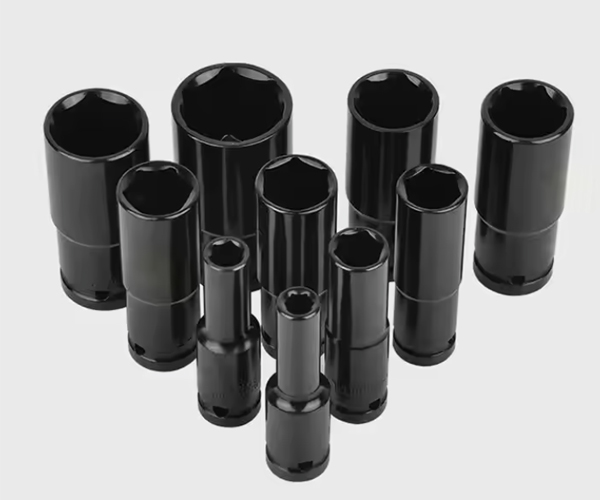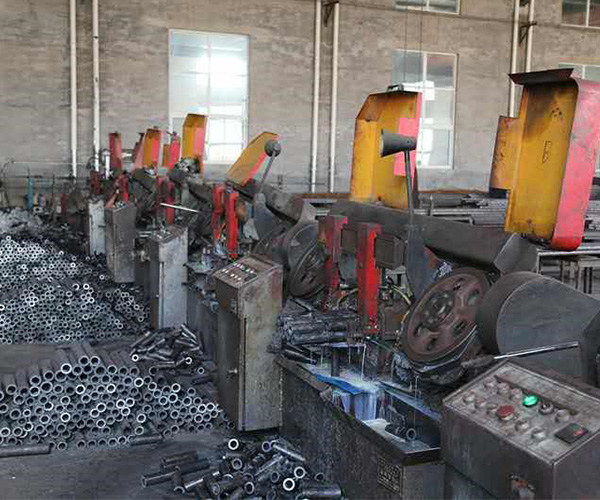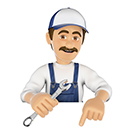Introduction
Screwdrivers are essential tools in both professional and household settings. From assembling furniture to fixing electronics, these versatile tools play a crucial role in various tasks. Understanding the different types of screwdrivers and their specific uses is vital for anyone looking to perform tasks efficiently and safely. This comprehensive guide will delve into the various screwdriver types, their uses, and how to select the right one for your needs. We’ll also touch upon maintenance tips and innovations in screwdriver design. Whether you are a professional or a DIY enthusiast, this guide will provide valuable insights into the world of screwdrivers, especially if you are considering screwdriver importing from China or seeking a reliable screwdriver manufacturer from China.
1. Understanding Screwdrivers
1.1 What is a Screwdriver?
A screwdriver is a hand tool designed for driving screws into various materials. It consists of three main parts: the handle, the shaft, and the tip. The handle is typically made from plastic, rubber, or wood, providing a comfortable grip. The shaft is usually made of steel for durability, and the tip is designed to fit the screw head, ensuring efficient torque application.
Screwdrivers are fundamental in both construction and repair work. They allow for the precise application of force, making it easier to fasten or unfasten screws without damaging the material or the screw itself. The design of screwdrivers has evolved over time, incorporating various features to improve functionality and user comfort.
1.2 Why Are There Different Types of Screwdrivers?
The variety in screwdriver types stems from the different screw head designs and the specific applications for which they are used. Each type of screw head requires a matching screwdriver tip to ensure a secure fit and efficient torque transfer. Using the correct type of screwdriver minimizes the risk of stripping the screw head or damaging the material being worked on.
Different screwdrivers are designed for different tasks, such as working in tight spaces, handling delicate electronics, or providing maximum torque for heavy-duty applications. The right screwdriver can make a significant difference in the ease and safety of a task. Understanding these differences is crucial for anyone looking to complete a job efficiently and effectively.
2. Common Screwdriver Types
2.1 Flathead Screwdrivers
Flathead screwdrivers, also known as slotted screwdrivers, are among the oldest and most recognizable types. They feature a flat, wedge-shaped tip that fits into the single slot of flathead screws. These screwdrivers are widely used in carpentry, woodworking, and electrical applications.
The simplicity of the flathead screwdriver makes it a versatile tool. However, it requires careful alignment with the screw slot to avoid slippage, which can damage both the screw and the material. Despite this, flathead screwdrivers remain a staple in many toolkits due to their wide range of applications.
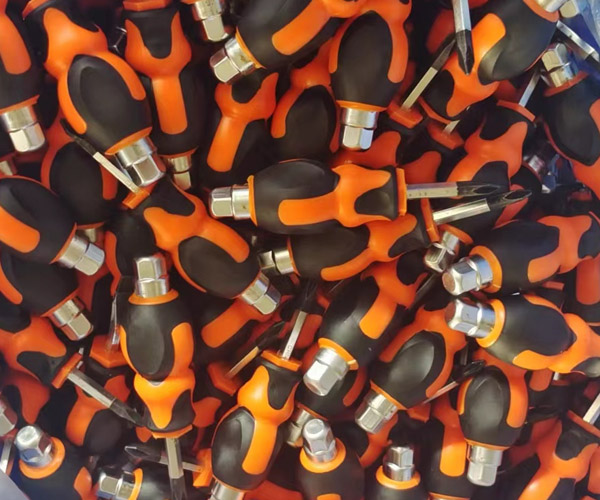
2.2 Phillips Screwdrivers
Phillips screwdrivers have a tip shaped like a cross, designed to fit Phillips screw heads, which feature a plus (+) shape cavity. Invented by Henry Phillips in the 1930s, these screwdrivers offer better control and torque compared to flathead screwdrivers.
Phillips screwdrivers are commonly used in general construction, assembly work, and electronics. The design allows for a more secure fit, reducing the likelihood of the screwdriver slipping out of the screw head. This makes them particularly useful in applications where precision is essential.
2.3 Torx Screwdrivers
Torx screwdrivers, also known as star screwdrivers, have a six-point star-shaped tip. They are sized according to T-numbers, ranging from T1 to T100, and are used with Torx screws featuring a similar star-shaped recess.
The distinctive shape of Torx screwdrivers provides excellent torque transfer, making them ideal for mechanical applications, structural framing, and finish work. They are especially popular in the automotive industry and for tasks requiring high torque without the risk of cam-out.
2.4 Robertson (Square) Screwdrivers
Robertson screwdrivers, also known as square screwdrivers, feature a tapered tip and a square-shaped bit that fits screw heads with a square cavity. Named after their Canadian inventor, Peter L. Robertson, these screwdrivers offer excellent torque control and screw head locking.
Robertson screwdrivers are commonly used in the automotive and furniture industries, particularly in Canada. The square design provides a secure fit, reducing the risk of the screwdriver slipping out of the screw head during use.
2.5 Hex (Allen) Screwdrivers
Hex screwdrivers, or Allen key screwdrivers, have a hexagonal tip that fits screws with a hexagonal recess. These screwdrivers are widely used in assembling flat-packed furniture, as well as in mechanical applications.
The hexagonal shape allows for the application of significant torque, making hex screwdrivers ideal for tasks that require a strong, secure fit. They are often included in furniture assembly kits and are a common tool in many mechanical workshops.
2.6 Pozidriv Screwdrivers
Pozidriv screwdrivers are an enhanced version of Phillips screwdrivers, featuring a similar cross-shaped tip but with additional lines between the main slots. This design provides improved stability and reduces cam-out when greater torque is applied.
Widely used in Europe, Pozidriv screwdrivers are preferred for applications requiring higher torque without the risk of slipping. They are commonly found in construction and manufacturing settings where precision and reliability are critical.
2.7 Tri-Wing Screwdrivers
Tri-wing screwdrivers have a tip resembling a pinwheel, designed for screws with a triangular recess. These screws are typically found in electronic devices such as smartphones and cameras, originally developed for the aerospace industry.
The unique design of tri-wing screwdrivers allows for precise torque application in small, delicate applications. They are essential tools for technicians working on electronic repairs and maintenance.
2.8 JIS (Japanese Industrial Standard) Screwdrivers
JIS screwdrivers are designed for cross-point screws commonly used in Japanese-manufactured products. These screwdrivers provide self-centering and fast engagement, offering better torque control than Phillips screwdrivers.
JIS screwdrivers are widely used in electronics and automotive industries. Their design minimizes the risk of cam-out and ensures a secure fit, making them ideal for precision work.
2.9 Security Screwdrivers
Security screwdrivers, also known as tamper-resistant screwdrivers, feature a pin at the center of their star-shaped head, designed to fit security screws with a matching hole. These screws are used in applications requiring tamper resistance.
Security screwdrivers are essential for tasks involving the installation or removal of security screws. They are commonly used in public infrastructure, electronics, and any setting where tamper-proof fasteners are required.
3. Screwdrivers for Specialized Uses
3.1 Impact Screwdrivers
Impact screwdrivers, also known as impact drivers, are heavy-duty, cordless tools designed for tightening or removing screws in dense or hard materials. They provide high torque, making them suitable for construction and automotive applications.
Impact screwdrivers are ideal for tasks that require significant force, such as driving screws into wood or metal. Their design allows for efficient energy transfer, reducing the effort required by the user and minimizing the risk of stripping the screw head.
3.2 Precision Screwdrivers
Precision screwdrivers are designed for working with very small screws, commonly found in electronics, eyeglasses, and toys. These screwdrivers typically feature Phillips or flathead tips, though Torx sets are also available.
The small size and fine tips of precision screwdrivers allow for delicate and precise work. They are essential tools for technicians and hobbyists working on detailed tasks that require careful handling and exact fit.
3.3 Ratchet Screwdrivers
Ratchet screwdrivers function like a ratchet, allowing the shaft to spin freely in one direction while gripping the screw in the other direction. Most ratchet screwdrivers feature a switch to reverse the direction, making them versatile tools for both tightening and loosening screws.
Ratchet screwdrivers are particularly useful in tight spaces and for long screws, where constant repositioning of a traditional screwdriver would be impractical. They are favored by professionals and DIY enthusiasts alike for their efficiency and ease of use.
3.4 Electric Screwdrivers
Electric screwdrivers, which operate similarly to electric drills, use interchangeable bits to quickly fasten and loosen screws. They can be corded or powered by rechargeable batteries, making them versatile tools for various applications.
Electric screwdrivers are perfect for tasks that require repetitive screw driving, such as assembly line work or large-scale construction projects. Their ability to quickly and efficiently drive screws reduces user fatigue and increases productivity.
3.5 Insulated and VDE Certified Screwdrivers
Insulated screwdrivers, often made from non-conductive materials like rubber, are designed for electrical applications to prevent electric shock. VDE-certified screwdrivers meet stringent safety standards set by the VDE, a German association promoting electrical safety.
These screwdrivers are essential for electricians and anyone working with electrical systems. The insulation and certification ensure user safety when working with live electrical circuits, reducing the risk of injury.
3.6 Magnetic Screwdrivers
Magnetic screwdrivers feature a magnetic tip that attracts screws, making it easier to hold them in place during fastening. This feature is particularly useful for small screws and precision work.
Magnetic screwdrivers are ideal for tasks that involve fiddly jobs, such as assembling electronics or repairing delicate items. The magnetic tip helps keep the screw aligned with the screwdriver, ensuring a secure fit and reducing the risk of dropping the screw.
4. Selecting the Right Screwdriver
4.1 Matching Screwdrivers to Screws
Selecting the right screwdriver involves matching the screwdriver type to the screw head. Using the correct screwdriver ensures a secure fit, efficient torque application, and minimizes the risk of damaging the screw or the material.
To match the screwdriver to the screw, identify the screw head type and select a screwdriver with a corresponding tip. Ensure the screwdriver size matches the screw size to avoid slippage and stripping. Proper selection enhances the efficiency and safety of your work.
4.2 Quality and Material Considerations
When purchasing screwdrivers, consider the quality and materials. High-quality screwdrivers are typically made from durable steel and feature comfortable, ergonomic handles. Professional-grade screwdrivers offer better performance and longevity compared to DIY-grade tools.
Investing in quality screwdrivers ensures reliable performance and reduces the risk of tool failure during use. Look for screwdrivers with hardened tips and comfortable grips, as these features enhance durability and user comfort.
5. Screwdriver Sets and Kits
5.1 Basic Screwdriver Sets
Basic screwdriver sets include a selection of the most commonly used screwdrivers, such as flathead and Phillips screwdrivers, in various sizes. These sets are ideal for home use and general repair tasks.
When selecting a basic set, look for a range of sizes and high-quality materials. A good set provides versatility and covers most household needs, making it a valuable addition to any toolkit.
5.2 Comprehensive Screwdriver Kits
Comprehensive screwdriver kits include a wide range of screwdriver types and sizes, often featuring specialized tools for specific tasks. These kits are ideal for professionals who require a variety of tools for different applications.
A comprehensive kit should include a mix of flathead, Phillips, Torx, Robertson, and hex screwdrivers, along with precision tools and possibly even electric screwdrivers. Investing in a comprehensive kit ensures you have the right tool for any job, enhancing efficiency and effectiveness.
5.3 Screwdriver Bit Sets
Screwdriver bit sets consist of interchangeable tips that fit into a single handle or power tool. These sets offer versatility and convenience, allowing users to quickly switch between different screw types without changing tools.
Bit sets are particularly useful for electric and impact screwdrivers. Look for sets that include a wide variety of bits, including flathead, Phillips, Torx, Robertson, and hex tips. Proper storage and organization of bit sets ensure easy access and prolong the lifespan of the bits.
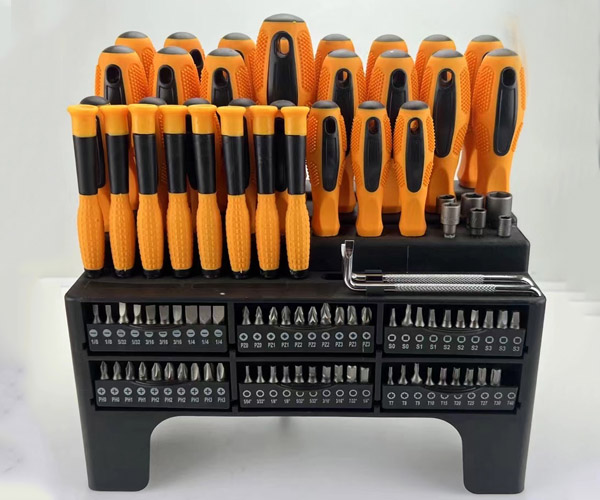
6. Screwdriver Maintenance and Care
6.1 Cleaning Screwdrivers
Maintaining clean screwdrivers is essential for their longevity and performance. After use, wipe down the shaft and tip with a clean cloth to remove any debris or residue. For stubborn dirt or grease, use a mild detergent and water.
Regular cleaning prevents the buildup of dirt and grime, which can affect the screwdriver’s performance and cause premature wear. Ensure the screwdriver is dry before storing it to prevent rust and corrosion.
6.2 Storing Screwdrivers
Proper storage is crucial for maintaining the condition of your screwdrivers. Store screwdrivers in a dry, organized space, such as a tool chest or wall-mounted rack. Using custom-cut foam inserts can help keep your tools organized and easily accessible.
Avoid leaving screwdrivers exposed to moisture or harsh environments, as this can lead to rust and damage. Organized storage ensures your tools are always ready for use and prolongs their lifespan.
7. Innovations in Screwdrivers
7.1 Ergonomic Designs
Ergonomic designs have become increasingly important in screwdriver manufacturing. These designs focus on user comfort and efficiency, reducing hand fatigue and the risk of injury during prolonged use.
Ergonomic screwdrivers feature contoured handles, non-slip grips, and balanced weight distribution. These features enhance comfort and control, making it easier to apply precise torque and reducing the risk of hand strain.
7.2 Electric and Cordless Screwdrivers
Electric and cordless screwdrivers offer significant advantages in terms of speed and efficiency. These tools are powered by batteries or direct power sources, allowing for quick and effortless screw driving.
Cordless screwdrivers are particularly convenient for mobile work and tasks that require frequent movement. Innovations in battery technology have improved the performance and longevity of these tools, making them a valuable addition to any toolkit.
7.3 Multi-bit Screwdrivers
Multi-bit screwdrivers offer versatility and convenience by allowing users to switch between different bits without changing tools. These screwdrivers typically feature a handle with storage for multiple bits and a mechanism for quick bit changes.
Multi-bit screwdrivers are ideal for tasks that require various screw types, providing a compact and efficient solution. Look for models with durable construction and a wide range of bits to cover most applications.
8. Safety Tips When Using Screwdrivers
8.1 Proper Techniques
Using screwdrivers safely involves proper techniques and precautions. Always select the correct screwdriver for the screw type and size to ensure a secure fit. Apply steady, even pressure when turning the screwdriver to avoid slippage.
Keep your hands clear of the work area to prevent injuries. If you encounter resistance, stop and reassess the situation to avoid damaging the screw or material. Proper technique ensures efficient and safe work.
8.2 Protective Gear
Wearing protective gear can prevent injuries when using screwdrivers. Safety glasses protect your eyes from debris, while gloves can improve grip and protect your hands. For electrical work, use insulated screwdrivers to prevent electric shock.
Using protective gear enhances safety and allows you to work with confidence. Always prioritize safety and use appropriate gear for the task at hand.
9. Frequently Asked Questions (FAQs)
9.1 What type of screwdriver should I use for basic household tasks?
For basic household tasks, flathead and Phillips screwdrivers are ideal. These versatile tools can handle a variety of common screws found in furniture, appliances, and fixtures.
9.2 Can I use a Phillips screwdriver for Pozidriv screws?
While a Phillips screwdriver can fit Pozidriv screws, it’s not recommended. The fit is not as secure, and there’s a higher risk of slippage. Using a dedicated Pozidriv screwdriver ensures better control and torque.
9.3 Are precision screwdrivers only for professionals?
No, precision screwdrivers are not only for professionals. They are useful for anyone working with small screws, such as those found in electronics, eyeglasses, and toys. Their fine tips allow for delicate and precise work.
9.4 Can I use an impact screwdriver for all types of screws?
Impact screwdrivers are best suited for heavy-duty applications and dense materials. For delicate or precise tasks, a hand screwdriver is often more appropriate. Using the right tool for the job ensures better results and reduces the risk of damage.
9.5 How do I maintain my screwdrivers for longevity?
Maintain your screwdrivers by cleaning them after use, storing them properly, and using the correct screwdriver for each task. Regular maintenance prevents wear and ensures reliable performance.
9.6 What are the commonly used screwdriver types?
The most commonly used screwdriver types are flathead and Phillips screwdrivers. These tools cover a wide range of applications and are essential for most toolkits.
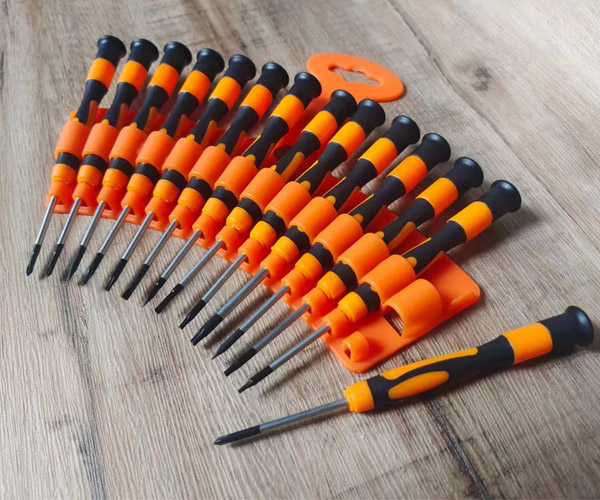
Conclusion
Screwdrivers are indispensable tools that, when used correctly, can help you efficiently and safely fasten and unfasten screws. Having the right screwdriver for the job not only makes tasks easier but also prevents damage to screws and materials. Investing in high-quality screwdrivers and maintaining them properly ensures long-lasting performance and reliability.
Whether you are a professional or a DIY enthusiast, understanding the different types of screwdrivers and their specific uses is crucial. Explore the diverse range of screwdrivers available from a reliable screwdriver manufacturer from China and find the perfect tools to get the job done right.
Additional Resources
- Links to relevant articles and guides
- Recommended tools and brands
- Contact information for further inquiries


